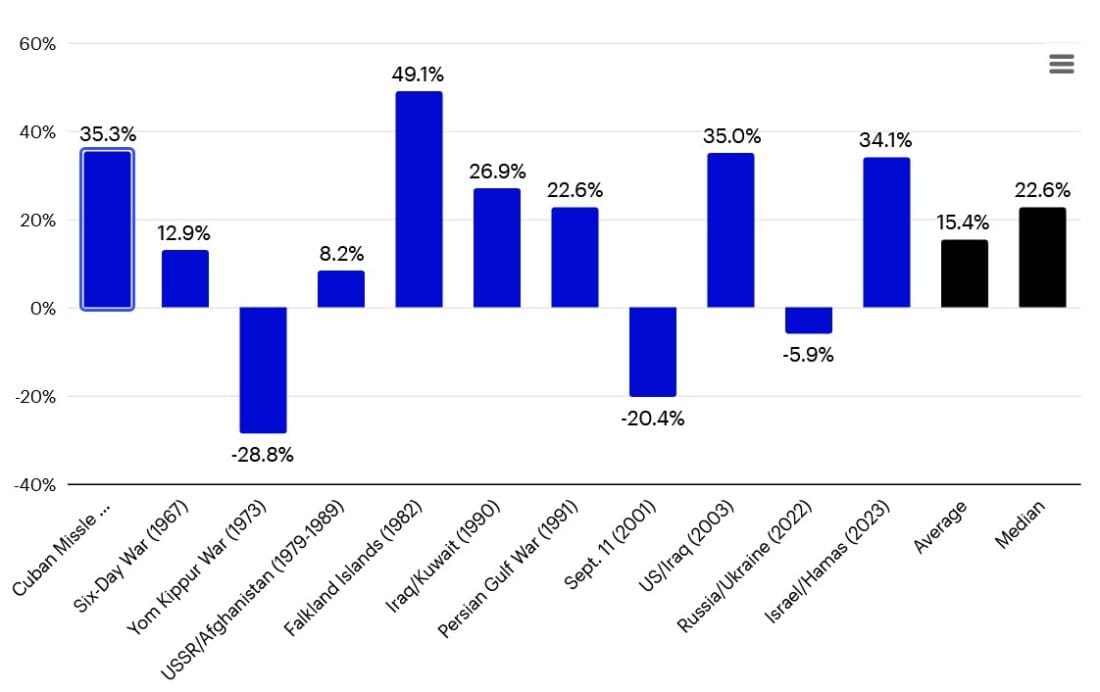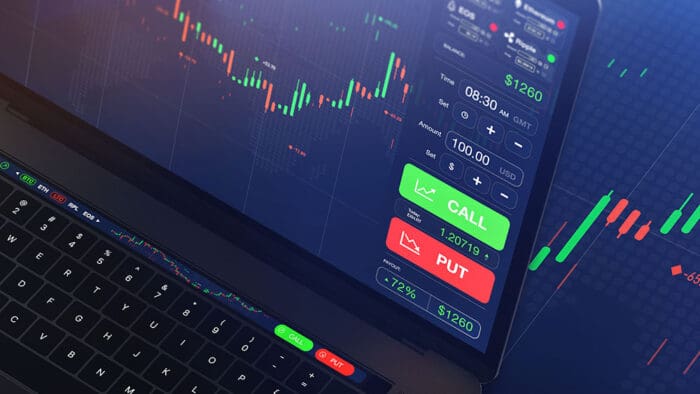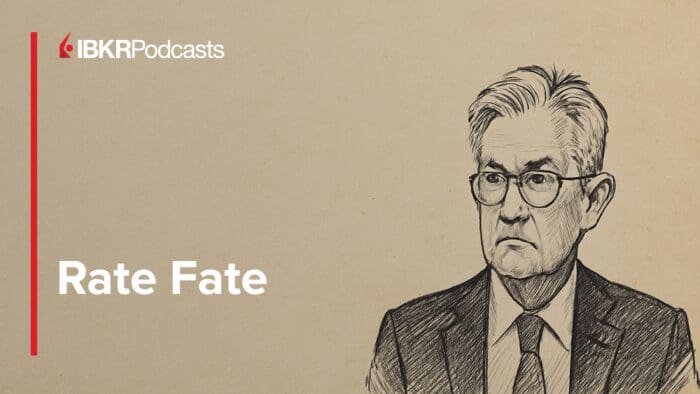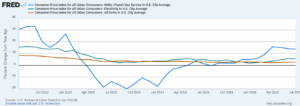Originally posted – 16 June 2025 – Military conflicts mostly haven’t affected long-term stock growth
Key takeaways
Market history
For more than a century, markets have advanced over the long-term despite war, recession, oil shocks, political assassinations, and much more.
Military conflicts
Military conflicts tempt investors to give up on to their investment plan, but these events haven’t historically stopped long-term market growth.
Long-term focus
Geopolitical conflicts, while unnerving, shouldn’t change investors’ long-term in view.
History is filled with challenging times. Wars, military conflicts, and historic events in general, may seem like the perfect time to reexamine an investment plan given the seemingly heightened risk. But long-term perspective is key. Over more than 120 years, the stock market has grown despite war, recession, oil shocks, political assassinations, and much more. Tumultuous events haven’t derailed the long-term growth of financial markets.
Stock market returns following geopolitical conflicts
If there’s a factor that impacts market performance, there’s an index to measure it. Geopolitical risk is no exception. The chart below illustrates 11 points in history where we experienced a peak in the Geopolitical Risk Index, and it shows the return of the S&P 500 Index 12 months after that peak. In most cases, the stock market rose significantly in the year following peak geopolitical risk.
Stocks have typically grown significantly in the 12 months following peak geopolitical risk
S&P 500 Index returns 12 months after a peak in the Geopolitical Risk Index

Source: Economic Policy Uncertainty, 10/24. The Caldara and Iacoviello GPR index reflects automated text-search results of the electronic archives of 10 newspapers: Chicago Tribune, the Daily Telegraph, Financial Times, The Globe and Mail, The Guardian, the Los Angeles Times, The New York Times, USA Today, The Wall Street Journal, and The Washington Post. Caldara and Iacoviello calculate the index by counting the number of articles related to adverse geopolitical events in each newspaper for each month (as a share of the total number of news articles). Past performance does not guarantee future results.
What long-term investors should focus on
While military conflicts understandably generate concerns about potential market impact, I believe long-term investors should focus on three questions:
1. What’s the economy’s outlook?
Ultimately, I believe investors should stay focused on the businesses that will harness innovations such as artificial intelligence and robotics, develop treatments for debilitating diseases, evolve the nation’s energy sources, and invent new technologies and industries that aren’t even on the radar. History suggests that innovations — and investment opportunities — will continue regardless of geopolitical difficulties.
2. What will the Federal Reserve do with monetary policy?
For all the focus on geopolitics, monetary policy probably matters more. The old adage holds true: Don’t fight the Fed. Historically, the economy has been hurt or helped by monetary policy conditions. It’s important that the Fed recently cut interest rates by 50 basis points and seems poised to cut again before the end of the year.
3. Does this military conflict change the answer to either of these questions?
Typically, the answer is no, so long as the conflict remains contained or regional. And that can run counter to what some investors might expect. Consider a couple of examples. The MSCI Poland Index has been one of the world’s best-performing indexes since Russia invaded Ukraine, climbing 69.2% (17.3% per year) from the February 24, 2022 invasion through June 12, 2025.1 The MSCI Israel Index is up 69.0% (36.6% per year) since the October 23, 2023. These aren’t outcomes many investors might have expected in the earlier days of those conflicts.
Stick to long-term investing plans
While unnerving, geopolitical conflicts shouldn’t change investors’ long-term investment plans, in my view. History has shown that other factors — economic growth, business innovation, and monetary policy — drive the path of the markets.
- 1 Source: Bloomberg L.P., as of June 12, 2025. Results measured in US dollars. Indexes cannot be purchased directly by investors. Past performance is not a guarantee of future results. The MSCI Poland Index is designed to measure the performance of the large and mid cap segments of the Polish market.
Disclosure: Invesco US
This does not constitute a recommendation of any investment strategy or product for a particular investor. Investors should consult a financial advisor/financial consultant before making any investment decisions. Invesco does not provide tax advice. The tax information contained herein is general and is not exhaustive by nature. Federal and state tax laws are complex and constantly changing. Investors should always consult their own legal or tax professional for information concerning their individual situation. The opinions expressed are those of the authors, are based on current market conditions and are subject to change without notice. These opinions may differ from those of other Invesco investment professionals.
NOT FDIC INSURED
MAY LOSE VALUE
NO BANK GUARANTEE
All data provided by Invesco unless otherwise noted.
Invesco Distributors, Inc. is the US distributor for Invesco Ltd.’s Retail Products and Collective Trust Funds. Institutional Separate Accounts and Separately Managed Accounts are offered by affiliated investment advisers, which provide investment advisory services and do not sell securities. These firms, like Invesco Distributors, Inc., are indirect, wholly owned subsidiaries of Invesco Ltd.
©2024 Invesco Ltd. All rights reserved.
Disclosure: Interactive Brokers Third Party
Information posted on IBKR Campus that is provided by third-parties does NOT constitute a recommendation that you should contract for the services of that third party. Third-party participants who contribute to IBKR Campus are independent of Interactive Brokers and Interactive Brokers does not make any representations or warranties concerning the services offered, their past or future performance, or the accuracy of the information provided by the third party. Past performance is no guarantee of future results.
This material is from Invesco US and is being posted with its permission. The views expressed in this material are solely those of the author and/or Invesco US and Interactive Brokers is not endorsing or recommending any investment or trading discussed in the material. This material is not and should not be construed as an offer to buy or sell any security. It should not be construed as research or investment advice or a recommendation to buy, sell or hold any security or commodity. This material does not and is not intended to take into account the particular financial conditions, investment objectives or requirements of individual customers. Before acting on this material, you should consider whether it is suitable for your particular circumstances and, as necessary, seek professional advice.
Disclosure: ETFs
Any discussion or mention of an ETF is not to be construed as recommendation, promotion or solicitation. All investors should review and consider associated investment risks, charges and expenses of the investment company or fund prior to investing. Before acting on this material, you should consider whether it is suitable for your particular circumstances and, as necessary, seek professional advice.
Disclosure: Futures Trading
Futures are not suitable for all investors. The amount you may lose may be greater than your initial investment. Before trading futures, please read the CFTC Risk Disclosure. A copy and additional information are available at the Warnings and Disclosures section of your local Interactive Brokers website.

















Join The Conversation
If you have a general question, it may already be covered in our FAQs page. go to: IBKR Ireland FAQs or IBKR U.K. FAQs. If you have an account-specific question or concern, please reach out to Client Services: IBKR Ireland or IBKR U.K..
Visit IBKR U.K. Open an IBKR U.K. Account